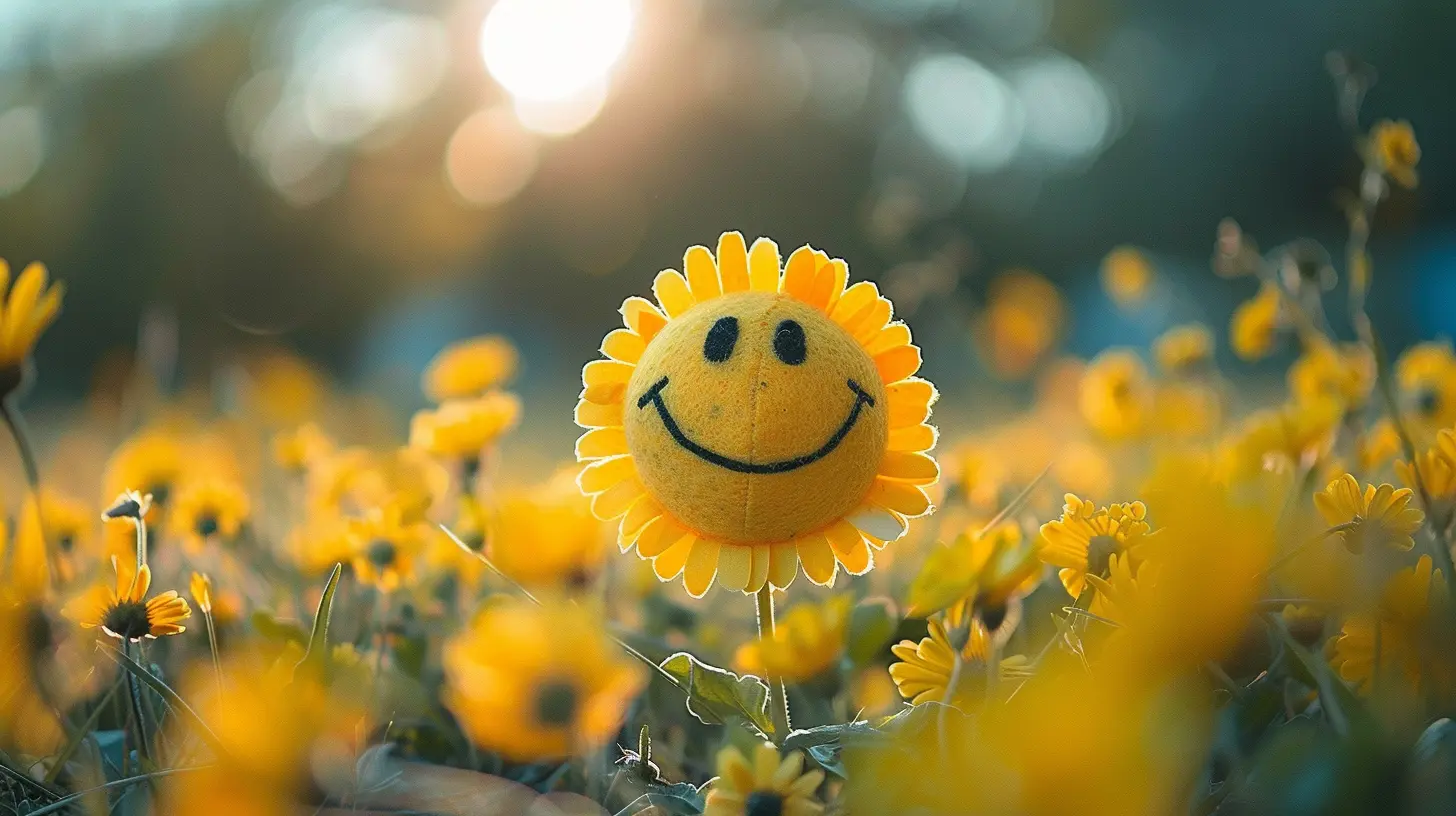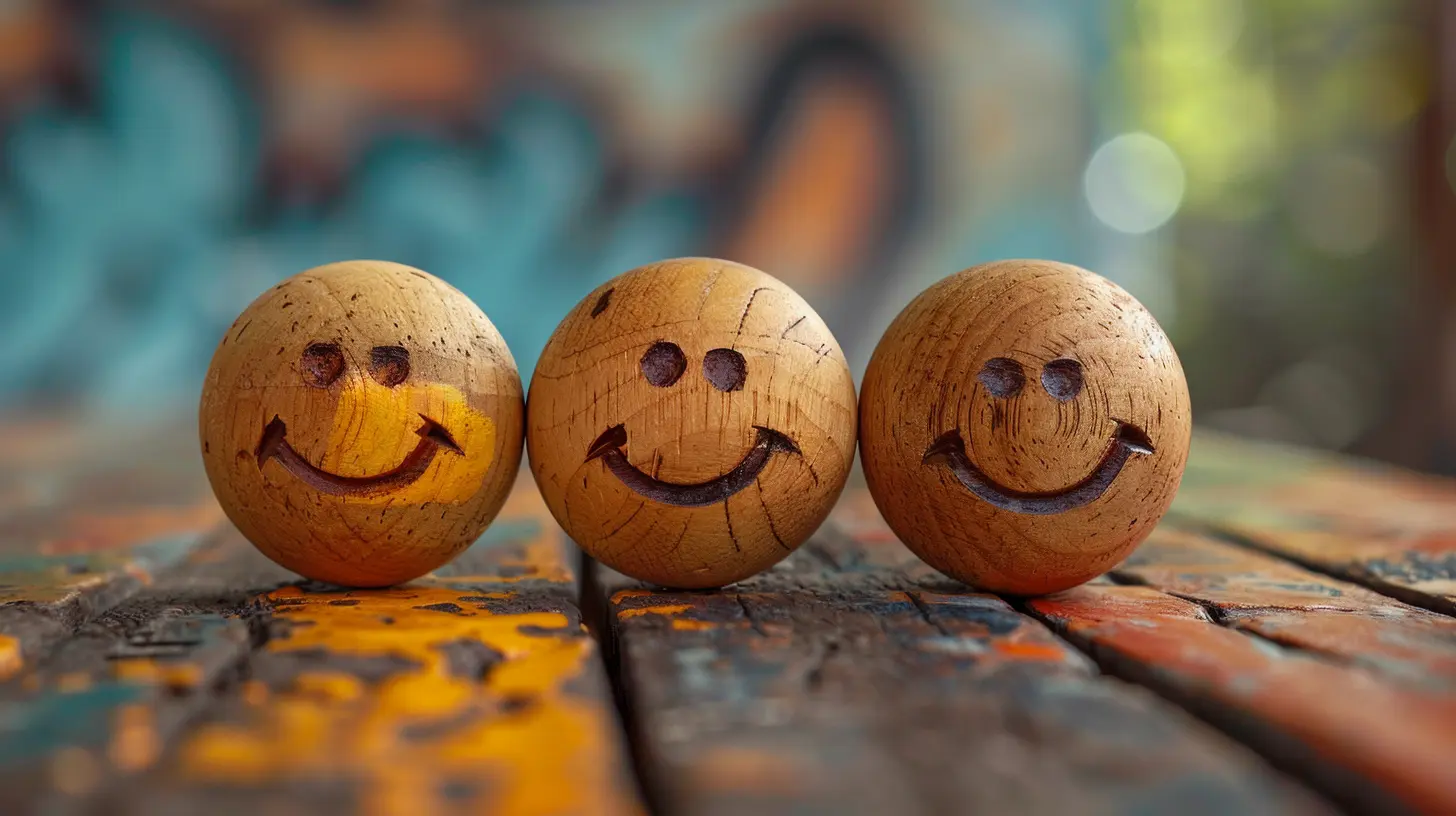The Connection Between Happiness and Forgiveness
5 September 2025
We’ve all been there—someone wrongs us, disappointment creeps in, and that deep-rooted feeling of resentment starts to grow. It's natural. But have you ever stopped to think about how holding onto that grudge might be quietly stealing your happiness?
Here’s the kicker: forgiveness, that thing we often view as a favor for the other person, might just be the missing puzzle piece to a happier, healthier life.
In this blog post, we're going to dig deep into the connection between happiness and forgiveness—why forgiving is more about your well-being than theirs, how it impacts mental health, and simple ways to start letting go.
What Is Forgiveness, Really?
Let’s squash a myth right away—forgiveness isn't about saying what happened was okay. Not at all.Forgiveness is about releasing yourself from the grip of anger, bitterness, and the emotional baggage that weighs you down. It's a choice to stop obsessing over what happened and allow peace to take center stage.
In simple terms? Forgiveness is setting yourself free.
Why Holding a Grudge Feels So "Right" Sometimes
Honestly, holding onto anger can feel kinda satisfying at first. Like, “They hurt me, and I’m not letting them off the hook!” Sound familiar?But the truth? While it feels powerful, resentment is like drinking poison and expecting the other person to suffer. It traps your mind in a cycle of negativity, draining your emotional energy.
Here’s a little brain hack—when we keep revisiting a painful memory, it reactivates the stress response in our body. You relive the tension, the anger, the hurt, over and over again. Not exactly the recipe for joy, right?
The Science Behind Forgiveness and Happiness
Let’s geek out for a second (just a little).1. Reduced Stress = More Smiles
Studies show that forgiving people tend to have lower cortisol levels, which means less stress. And what comes with lower stress? Better sleep, clearer thinking, and yeah—you guessed it—more happiness.2. Better Mental Health
People who practice forgiveness regularly report lower levels of depression, anxiety, and rumination. Why? Because when you forgive, you're not constantly replaying the worst moment of your life in your head.3. Stronger Relationships
Let’s face it—relationships are messy. But forgiveness leads to better communication, empathy, and trust. When you're not holding past mistakes over someone’s head, there’s space to grow together.4. Boosted Self-Esteem
You might not expect this one, but forgiving others can actually help you feel better about yourself. It shows emotional maturity, resilience, and courage—all traits that lift self-worth.
Why Forgiveness Is Hard—and Why That’s Okay
Here’s the truth bomb: forgiveness isn’t easy. Especially when trust is shattered or the hurt cuts deep.And you know what? That's okay.
Forgiveness doesn't mean forgetting. It doesn't mean you have to reconnect with the person or pretend like nothing happened.
It simply means you're choosing inner peace over lingering pain.
Think of it like cleaning out your closet. It’s hard to let go of certain clothes (even if they no longer fit), but once it’s done? You feel lighter, refreshed, and ready for what’s next.
The Happiness-Forgiveness Feedback Loop
Here’s an interesting twist—happy people tend to forgive more easily, and forgiving people tend to feel happier. Mind blown?This creates a beautiful feedback loop:
- You forgive someone ➜ you reduce stress and bitterness ➜ you start feeling happier ➜ you approach future conflicts with more ease ➜ you forgive more ➜ you feel even happier.
It’s like emotional compound interest.
Forgiveness: A Skill You Can Practice
Good news: Even if forgiveness doesn’t come naturally to you, it’s a skill that can be learned and strengthened, kind of like a muscle.1. Acknowledge the Pain
First thing’s first—don’t sweep your feelings under the rug. You can’t heal what you won’t admit is wounded.Write it down, talk it out, or even scream into a pillow if that helps. Recognizing the hurt is step one.
2. Shift Your Perspective
Try this mental exercise: What might have led the person to act the way they did? Were they projecting their pain? Acting out of fear or insecurity? It doesn’t excuse the behavior, but it helps you detach from taking it personally.3. Set Boundaries
Forgiveness doesn’t mean offering unlimited access. Set clear boundaries if needed. You can forgive and still keep a distance if it protects your peace.4. Commit to Your Own Peace
Tell yourself, “I forgive you, not because you deserve it, but because I deserve peace.” This isn't about them; it’s about reclaiming your energy.5. Repeat as Needed
Forgiveness isn’t always a one-time event. Some wounds require ongoing effort. And that’s perfectly normal.Can You Be Happy Without Forgiveness?
Well, let’s put it this way—can you carry a backpack full of bricks on a hike and still enjoy the view?Sure, it’s possible, but it’s gonna be a lot harder.
Anger and unresolved hurt weigh us down, mentally and physically. Happiness, on the other hand, thrives in lightness. Joy needs room to breathe. And forgiveness clears the clutter.
Real-Life Stories: Forgiveness in Action
Let’s bring this down to earth.Sarah’s Story
Sarah was betrayed by her best friend, who spread a deeply personal secret. For years, she avoided mutual friends, replayed the betrayal, and let bitterness bubble inside. One day, during a meditation retreat, she wrote a letter—not to send it, but to let it all out.“I started crying halfway through,” she said. “By the end, I felt this weird release. I didn’t forget what happened, but I wasn’t angry anymore. I was tired of carrying it.”
She never reconnected with the friend, but guess what? Her happiness skyrocketed. She no longer felt held hostage by the past.
Mike’s Story
Mike forgave his emotionally distant father, not through some grand speech, but by slowly shifting the story he told himself.“Maybe he didn’t know how to show love. Maybe he did his best,” Mike said. “I stopped expecting an apology and started focusing on being a better dad to my own kids.”
That change in mindset helped Mike break the cycle—and brought him peace he never thought possible.
When Forgiveness Leads to Self-Forgiveness
Here’s one we don’t talk about enough: forgiving yourself.We all mess up. We say the wrong thing, make the wrong decision, hurt someone we love. And often, the harshest critic lives in our own head.
But guess what? Letting go of guilt and shame isn’t selfish—it’s necessary growth.
You deserve joy, too. Don’t let your past drag your future down.
Quick Exercises to Cultivate Forgiveness
Ready for some actionable steps? Try these out:1. Write an Unsent Letter
Pour out everything you're feeling. Don’t censor yourself. Let it flow—all the anger, sadness, confusion. Then, when you’re done, destroy it. Tear it up, burn it (safely!), or just delete it if typed.2. Guided Meditation
Apps like Calm or Insight Timer have forgiveness meditations that help you breathe through those feelings and soften your heart, one breath at a time.3. Gratitude Journaling
Focusing on what’s good helps shift your mindset away from bitterness. Try writing 3 things you're grateful for every day.4. Forgiveness Affirmations
It might feel cheesy at first, but say it anyway: “I release the past. I choose peace. I forgive to free myself.”Final Thoughts: Forgiveness Sets You Free
Here's the truth in plain words—forgiveness is a gift you give to yourself.It doesn’t erase the pain, but it transforms it into wisdom. It doesn’t let the other person off the hook, but it unhooks you from the weight of resentment.
If you’re serious about living a happier life, forgiveness isn’t optional—it’s essential. It's not weakness. It’s not surrender. It’s strength. The kind of strength that builds peace, joy, and emotional freedom.
So… what are you holding onto, and is it costing you your happiness?
It might be time to let go.
all images in this post were generated using AI tools
Category:
Psychology Of HappinessAuthor:

Alexandra Butler
Discussion
rate this article
1 comments
Eliza Klein
Loved this article! It’s amazing how letting go and forgiving not only lightens our hearts but also boosts our happiness. A gentle reminder we all need!
September 5, 2025 at 3:34 PM

Alexandra Butler
Thank you! I’m glad you found it inspiring. Forgiveness truly is a powerful tool for happiness!


